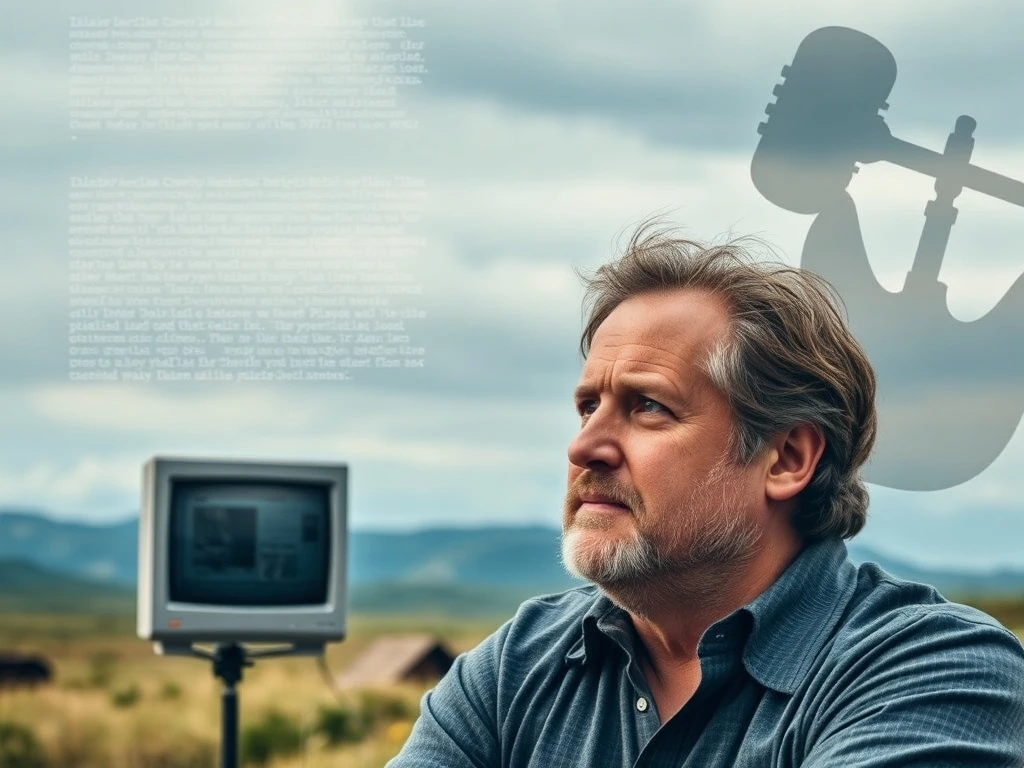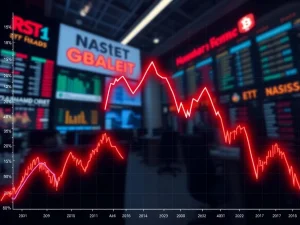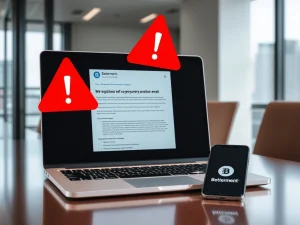Ripple CTO David Schwartz’s Candid Regret Over Black Sabbath Q&A Deception

In a surprising and candid revelation that has piqued the interest of both crypto enthusiasts and music fans, Ripple CTO David Schwartz has publicly admitted profound regret over his role in a Black Sabbath fan Q&A session from the late 1990s. This isn’t your typical blockchain news; it’s a deep dive into the ethical quagmire of early internet moderation, highlighting the delicate balance between managing public interactions and preserving genuine Digital Authenticity. For those following the cryptocurrency space, hearing such a personal admission from a prominent figure like Schwartz offers a unique perspective on integrity, even beyond the digital ledger.
Ripple CTO David Schwartz Unveils a Past Ethical Dilemma
During his tenure at WebMaster in the late 1990s, Ripple CTO David Schwartz found himself in an unenviable position while moderating a highly anticipated fan Q&A with the legendary band Black Sabbath, including the iconic Ozzy Osbourne. In a recent post on X, Schwartz openly confessed to fabricating questions and filtering responses to make the session appear more balanced and authentic than it truly was. He described the experience as a ‘failure’ due to the inherent inauthenticity of the interaction, a sentiment that resonates deeply in today’s world of curated online content.
Schwartz detailed how fans overwhelmingly directed their questions towards Ozzy Osbourne, leaving little engagement for other band members. To combat this imbalance and maintain the illusion of collective participation, he resorted to using pre-written, ‘canned questions,’ rotating them among the band. Astonishingly, only ‘two or three’ genuine fan queries actually made it through to the session.
The Challenges of the Black Sabbath Q&A: Censorship and Authenticity
Beyond fabricating questions, Schwartz also admitted to censoring Osbourne’s answers, specifically removing profanity – notably the ‘C-word’ – to align with perceived audience sensibilities. This decision, he explained, was influenced by the technical limitations of the era’s internet connection and the pressure to sanitize content for a broader audience. It raises a crucial question: at what point does moderation cross the line into misrepresentation?
The incident occurred during Osbourne’s active career, a period when his persona as ‘The Prince of Darkness’ was inextricably linked with his unfiltered language and rebellious spirit. Schwartz’s admission underscores the tension between preserving a celebrity’s raw authenticity and adhering to public decency standards, particularly in nascent online spaces. This early Black Sabbath Q&A serves as a compelling case study in the ethical dilemmas that platforms and moderators face when curating real-time celebrity interactions.
Digital Authenticity: Lessons for Today’s Online World
Schwartz’s experience offers valuable insights into the ongoing debate surrounding Digital Authenticity in the internet age. While his actions were rooted in the technical constraints and expectations of the late 90s, the core dilemma remains relevant:
- The Pressure to Curate: Platforms often feel compelled to ‘enhance’ user experience, which can sometimes lead to editorial interventions that compromise genuine interaction.
- Balancing Image vs. Reality: For public figures, maintaining a certain image is crucial, but an overreliance on sanitization can alienate fans who crave unfiltered access.
- The Evolving Definition of ‘Live’: In the age of AI-generated content and sophisticated editing tools, what truly constitutes a ‘live’ or ‘authentic’ interaction is constantly being redefined.
This incident reminds us that even well-intentioned moderation can inadvertently dilute credibility. The ‘ripple’ effects (pun intended) of this early experience may reflect broader debates about digital curation, where platforms often prioritize user comfort over unaltered content, raising questions about transparency and trust.
Beyond the Q&A: Ozzy Osbourne’s Enduring Legacy in Digital Markets
Interestingly, this admission from the Ripple CTO coincided with a separate, albeit unrelated, surge in memecoins inspired by Ozzy Osbourne’s enduring legacy. One such token, The Mad Man (OZZY), reportedly saw a staggering 16,800% increase in value, trading at $0.003851 with a market cap of $3.85 million following Osbourne’s death. While not directly linked to Schwartz’s professional regret, this trend powerfully illustrates how Osbourne’s cultural impact continues to permeate various digital markets, including the volatile world of cryptocurrencies.
This phenomenon, while tangential to the core story of moderation ethics, highlights the pervasive influence of cultural icons across diverse digital landscapes, from early internet forums to modern crypto markets. It underscores how celebrity and cultural relevance can drive value and attention in unexpected ways.
Conclusion: A Call for Transparency in Digital Interactions
David Schwartz’s candid admission serves as a powerful reminder of the complex ethical landscape of digital interactions, from the early days of the internet to today’s sophisticated platforms. His regret over the inauthentic Black Sabbath Q&A underscores the fine line between enhancing user experience and compromising Digital Authenticity. As the internet continues to evolve, the challenge remains for platforms and moderators to honor both the true essence of public figures and the genuine expectations of their audiences, without resorting to excessive editorial interventions. Transparency, even when revealing past mistakes, ultimately builds trust and strengthens the integrity of our digital spaces.
Frequently Asked Questions (FAQs)
Who is David Schwartz?
David Schwartz is the Chief Technology Officer (CTO) of Ripple, a prominent blockchain company known for its XRP cryptocurrency. He is a key figure in the cryptocurrency space, responsible for much of Ripple’s technological development.
What was the Black Sabbath Q&A incident David Schwartz regretted?
In the late 1990s, while working at WebMaster, David Schwartz moderated an online Q&A session with the band Black Sabbath, including Ozzy Osbourne. He later admitted to fabricating questions and censoring Ozzy Osbourne’s responses to manage the session’s flow and content, an act he now regrets due to its inauthenticity.
Why did Schwartz censor Ozzy Osbourne’s answers?
Schwartz stated he censored Ozzy Osbourne’s answers, specifically removing profanity (referring to the ‘C-word’), due to the technical limitations of early internet connections and pressure to sanitize content to align with perceived audience sensibilities and protect the band’s image.
What are the broader implications of this incident for digital platforms?
The incident highlights the ongoing ethical challenges in digital content moderation, particularly concerning authenticity, transparency, and censorship. It underscores the tension between curating content for user experience and preserving the genuine voice of participants, a dilemma still relevant for social media and online platforms today.
Is this incident related to Ripple’s current operations or technology?
No, the incident occurred in the late 1990s, long before David Schwartz joined Ripple. It is a personal admission about a past professional experience and is not directly related to Ripple’s current technology, operations, or the XRP cryptocurrency.
What is meant by ‘Digital Authenticity’ in this context?
‘Digital Authenticity’ refers to the genuine, unedited, and truthful representation of content and interactions in online spaces. In this context, Schwartz’s actions compromised the digital authenticity of the Q&A by fabricating questions and censoring responses, making the interaction less real for the fans.






